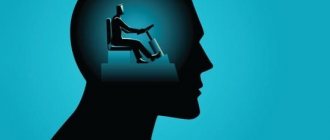Every society has a set of rules, assessments, principles and norms of behavior that are based on a historically established understanding of what is good, what is bad, and is not subject to criticism. This organization of life in society is called morality. For many people, this is synonymous with moral behavior.
Moral behavior
In psychology, this concept is considered not only in a collective, but also in an individual sense; morality is understood as the level of self-control of an individual.
How did morality appear, its essence
The term "morality" is of Latin origin. Literally translated, it means “character”, “custom”. Over the centuries since its appearance, its content has changed. The concept is based on the laws and traditions of the state. Changes in the social way of life and the evolutionary development of society entailed a transformation in the content of morality.
In modern society, this concept is used as a presentation of acceptable human actions. At the same time, legally established principles in relation to people with different citizenships in the territory of one country will operate differently. They treat “insiders” more leniently than strangers. The current legislation of the Russian Federation provides for the recovery of compensation from a citizen if he has caused moral damage to someone.
In addition, society has a class stratification; different rules and norms of behavior prevail in its different layers. By identifying himself with a particular social group, a person accepts its legal principles. He develops a sense of responsibility for his actions, empathy, guilt, and repentance.
Research reports regarding the emergence and development of morality in humans can be combined into 3 approaches:
- The cognitive approach is based on the confidence of scientists that morality goes through several stages in its development and is correlated with the age periodization of development. The founders of this approach were J. Piaget, L. Kohlberg, E. Turiel.
- The biological approach connects morality with the development of the psyche. A small child is not yet able to understand moral rules and analyze the behavior of others. An adult whose mental functions have reached their maximum, observing this or that behavior of people, can say with confidence whether it is moral or not. Proponents of this approach were D. Haidt and M. Hoffman.
- The psychoanalytic approach explains the child’s ability to follow the rules for the development of feelings of guilt and shame. The founder of this approach is S. Freud.
Feelings of guilt and shame
Attention! Moral norms differ in different countries. Their content is determined by nationality, value guidelines of residents and the desire of state authorities to protect the quiet life of citizens.
Definition of morality in different sciences
Fear of heights - what is the name of the phobia?
Sciences that study human behavior, law and laws, and the characteristics of different segments of the population offer different interpretations of moral teachings. However, all these definitions are similar in that morality is a person’s assessment of his actions from the point of view of their correctness or incorrectness.
Important! In different societies, the attitude towards the same act may be different, because morality and morality of an individual are conditional characteristics.
The first science in which researchers began to wonder what morality is was philosophy. The author of the term “morality” is Cicero. Ancient philosophers identified it with ethical principles of behavior.
Physiologists and biologists have established that a separate cognitive system is not formed in the human brain at the moment of thinking about moral issues. Solving questions related to moral choice activates the neural regions of the brain that are responsible for a person’s explanation of the intentions of other people. These same parts of the brain are responsible for a person’s understanding of social emotions. Based on this, the researchers concluded that morality is involved in the emergence of mutual understanding between people. The physiological development of a part of the brain also explains the formation of the moral foundations of a person in the process of growing up.
Psychologists, answering the question of what morality means, associate it with a person’s personal development, with the emergence of his ability to empathize with others, analyze his own and others’ behavior. From the point of view of psychology, the formation of morality is impossible without education. Norms and values are formed in the family. It is here that the experience of moral behavior must be passed on from one generation to another.
Important! In philosophy, morality is ethics. Physiology has proven that morality is a result of brain development. In psychology, the concept of morality is associated with a high level of education.
High education
Norms and principles of morality
Moral norms are regulators of people’s behavior in all types of social life: at home, in the family, at work, in communication with friends. Morality extends to relations between groups within the same society, as well as to relations between states. Through the condemnation of illegal actions by members of society, specialized control over compliance with the norms and rules of interaction is implemented. Internally, moral behavior is controlled by a person’s conscience.
Apiphobia - what kind of disorder is it?
Moral standards can be compared to a scale for assessing the legal, political and aesthetic actions of an individual. You can understand how life in a society is morally organized if you become familiar with the peculiarities of public administration in it, its traditions and forms of expression of public opinion.
However, compliance with moral standards is not always the result of good upbringing, the formation of moral patterns of behavior in a person. A person can control his behavior and actions out of fear of punishment. Violation of moral standards entails responsibility and sanctions.
Additional Information. Moral standards are not just customs and traditions. They have an ideological basis in the human mind. Guided by them, a person not only decides what to do in a given situation, he has ideas about the admissibility and impermissibility of this or that behavior in general.
Moral principles are briefly formulated basic moral requirements of society. They guide people's behavior and act simultaneously on all members of society. Through them, a national culture is formed. The basic moral principles include:
- The principle of humanism, according to which man is the most important value;
- The principle of altruism, requiring selfless service to loved ones;
- The principle of mercy says that love should be compassionate and active, a loving person should be ready to help a loved one;
- The principle of collectivism speaks of nurturing a person’s need to contribute to the achievement of a common goal;
- The principle of renouncing individualism means prohibiting the opposition of an individual to a group, condemning egoism;
- The principle of consciousness reflects how thoughtful a person is about his actions.
Important! Moral principles are criteria for the education of citizens.
Upbringing
The purpose of morality in human life
Morality permeates the whole life of a person. This is explained by the fact that in everyday life an individual interacts with different people. People depend on each other and have a need for social interaction and communication. One person cannot achieve high results, but when working in a team, he feels his contribution to the common cause. In order for people, working together, to maintain a respectful attitude towards each other, it was decided to introduce rules of life in society that are equivalent to moral principles. Their elements are:
- Moral consciousness;
- Moral activity;
- Highly moral relationships.
Obsessive movement syndrome in a child
What does it mean to “behave morally”? This means subordinating your actions to social ethical patterns. Regulating the actions of one person is a manifestation of the collective will of society. Ideals of social behavior are the result of people’s attempts to reconcile the interests of one individual and the positions of society.
Attention! Morality is not a specially organized activity, unlike such phenomena of social life as art, religion, and science. Today there are no institutions that would regulate the development of morality. The efforts and resources that are provided for the development of science and art are not invested in the development of morality. This is the paradoxical meaning of morality: it is elusive, but all-encompassing.
Morality performs such functions as regulatory, evaluative, educational, controlling, integrating.
Regulatory function
This is the main function of morality. This includes identifying signs of acceptable behavior and self-control of an individual’s actions.
Evaluation function
Morality divides all social phenomena into characteristic groups: good and bad. Examples of such a division can be mercy, help, mutual assistance, assessed by people as positive manifestations of personality; theft, deception, meanness, considered as harm and immoral behavior.
Note. If a person is able to evaluate this or that phenomenon, it means that he has formed the moral foundations of his worldview.
Assessment is an indicator of developed morality
Educational function
Morality is formed through educational influences. By adopting patterns of behavior from older generations, younger generations learn the laws of life in society. Education allows you to combine public and personal interests in a person. The main task of education is to teach a person to achieve his goal without infringing on the interests of other people.
Control function
This function instructs morality to monitor the implementation of norms and rules of behavior in society. The ways to implement this function are condemnation, sanctions and conscience.
Integrating function
This function calls for morality to establish unity between humanity in general and the spiritual world of the individual in particular.
Bottom line
We have examined the essence, structure and functions of morality as much as possible in a short article. This topic is actually very interesting and concerns each of us. But, as a consequence of its fascination, it is very extensive, and discussions about it have been put forward by a huge number of great minds. Therefore, for a more complete study, you will have to wade through many webs of other people’s thoughts and arguments. But it's worth it.
Morals and ethics
Morality and ethics have certain similarities. They also have different features. The main differences between ethics and morality are as follows:
- Ethics has long been a science that contains ideal examples of social behavior. Morality is not a science, it is a side of people's real social life.
- Ethics answers the question “How should a person behave?” Morality answers the question: “Why should a person follow the rules and norms of behavior?”
- Ethics is a broader concept. Morality is the subject of the study of ethics.
- The content of ethics is relatively constant, while the content of morality changes along with socio-economic changes in society.
Additional Information. Today, ethics is recognized as a practical version of philosophy, one of the sections of which is devoted to the study of the moral system of social behavior.
Religious approach
The religious approach bases morality on the laws given by some God or gods. This representation is the oldest of those present. Indeed, people who lived long before us were inclined to explain incomprehensible things by divine intervention. And since people kneel before the deities, then the emergence of dogmas is only a matter of time. These rules were not transmitted directly, but through a prophet who had some contact with the “higher world.”
Since these dogmas were first introduced in primitive society, the decrees could not be full of complexity. They often called for humility and peacefulness in order to reduce the fear, and therefore the aggression, of the oppressed peoples. After all, if we look at history, most religions arose precisely from those who suffered. They had a “fire of revolution” burning in their souls, which had to be controlled while at the same time uniting people.
For example, we can cite the Ten Commandments in Christianity. They are well known to many. If we look at them, we will not see any difficulties in understanding. Everything ingenious is simple. The same situation is with many religions. There are no rules like, “Just make sure people don’t spit on you.” This would be incomprehensible, and everyone would interpret it differently. No, these are direct instructions in an imperative tone. "Dont kill". "Don't steal." "Don't believe in other Gods." Everything is concise, and there can be no double meaning.
The importance of morality in human society
For the life of a modern person, the meaning of morality is determining the way of interacting with people. The ethical conditions for joint activities are justified by the need for mutual respect between people in the team.
A person cannot live outside of society. For successful socialization and the opportunity to be useful, he must obey the norms and rules of group interaction. When a person is faced with a moral choice, he must always think about how his loved ones will react to his action.
The role of morality in society
Social approach
The social approach shows morality on the part of society. It develops and changes, adapting to his needs. That is, morality did not appear from the gods and was not laid down initially, but was only artificially created by social institutions. Obviously, morality was invented as a tool for regulating relationships.
This approach opens up space for debate. After all, no one will argue with old Moses, who could communicate with God face to face, just as no one will go against the centuries-old wisdom of nature. This means that morality is perceived as something given and immutable. But when we take a social approach, we become open to disagreement.










